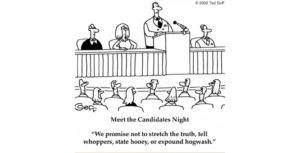
Defamation is the act of harming someone’s reputation by making false statements to a third person. There are two types of defamation: libel and slander. Libel is written or printed statements, such as an email or newsletter. Slander is a gesture or a spoken statement.
There are five elements to prove a claim for defamation. First, you must prove that the defendant published the statement. In other words, the defendant had to communicate the statement to a third person.
Second, the statement must be false. This means that the statement was either directly untrue or that it implies a fact that was untrue. Statements of opinion or belief are not defamatory because they are not statements of fact.
Third, the statement cannot be privileged (also known as protected). There are two types of privileges: absolute and conditional. Generally, a statement that is absolutely privileged cannot be defamatory. Statements protected by an absolutely privilege are judicial communications (statements made by judges, jurors, witnesses, litigants, and attorneys in judicial proceedings), statements made in legislative proceedings, and communications between spouses. In contrast, a statement that is conditionally privileged may be defamatory, but only if the defendant published the statement with the requisite intent (as discussed below under the fourth element). Examples of statements that may be conditionally privileged are employment communications and common-interest communications. Employment communications include communications between a potential employer and a former employer about an employee. Common-interest communications are statements between those who share a common interest, such as communications between members of a homeowners association.
Fourth, you must prove that the statement was published with the requisite degree of fault. The levels of fault are strict liability, negligence, common-law malice, and actual malice. Factors a court considers when determining the level of fault are: (i) whether the statement was conditionally privileged, (ii) whether the statements was made about a matter of private concern or public concern, and (iii) whether the statements concerned a public or private individual.
Fifth, with a few exceptions, you must prove that the statement caused damages. Damages can include loss of salary, employment, or income. Damages can also include non-economic damages like mental anguish and suffering, emotional distress, humiliation, or harm to reputation.
Notably, defamation is subject to a statute of limitations. In Utah, you only have one year to file a lawsuit for defamation.

